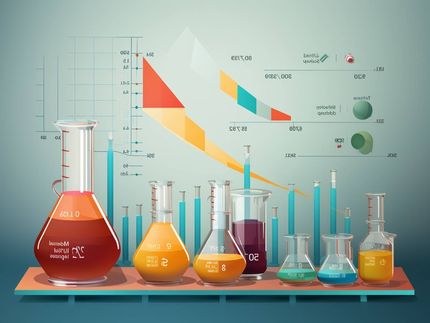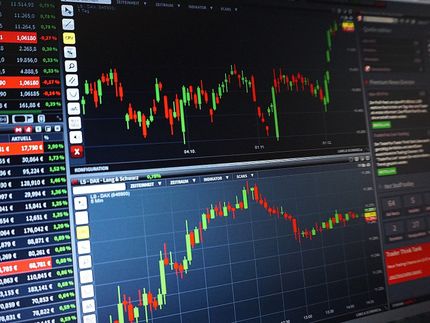Bayer: Strategic progress in challenging business environment
Bill Anderson: “We're tackling challenges head on and making progress on our strategic priorities”
The Bayer Group has reported third-quarter sales that were level with the prior-year period on a currency- and portfolio-adjusted basis (Fx & portfolio adj.), while earnings declined. From a strategic perspective, the company made further progress. “We’ve rapidly scaled the new operating model and significantly leveled up the Pharma pipeline,” said Chief Executive Officer Bill Anderson on Tuesday when presenting the company’s Quarterly Statement. “We are confirming our 2024 Group guidance in nearly all parameters.”
The development of the agricultural market has been weaker than anticipated, especially in Latin America, and the company also continues to face pricing pressure in the crop protection business, he said. Bayer is therefore lowering its 2024 targets for Crop Science. For 2025, Bayer is cautious on the agricultural market environment. Additional regulatory challenges and generic pricing pressures are set to put pressure on the crop protection business.
Commenting on Pharmaceuticals, Anderson explained that the company is confident that the division will be able to deliver at the upper end of the upgraded 2024 guidance issued in the Half-Year Financial Report. “We’re happy with what we see from our launch products,” he said. For 2025, the company expects to see continued growth momentum from the cancer drug Nubeqa™ and from Kerendia™ for the treatment of patients with chronic kidney disease associated with type 2 diabetes. That is important, he said, as the loss of exclusivity impact on the oral anticoagulant Xarelto™ is expected to accelerate in the other direction, putting even greater pressure on the EBITDA margin before special items than this year. In addition, Bayer is targeting 2025 market launches for acoramidis and elinzanetant.
In Consumer Health, Anderson noted that Bayer has been delivering continued growth (Fx & portfolio adj.) for more than five years and “has every intention of continuing that” in 2024. However, the pace of growth is set to be slower than initially planned, in step with the market. For 2025, the division plans to continue to grow, with a focus on increasing volumes, he said.
“Overall, we expect a muted outlook on top and bottom line next year with likely declining earnings. We plan to accelerate our cost and efficiency measures to partly compensate and remain laser focused on cash conversion,” said Chief Financial Officer Wolfgang Nickl.
“We're tackling challenges head on and making progress on our four strategic priorities,” Anderson said, referring to innovation, US litigation, cash and deleveraging, and the implementation of the operating model Dynamic Shared Ownership. Regarding innovation, for instance, Nubeqa™ achieved blockbuster status in September after crossing the threshold of one billion euros in annual sales. Furthermore, the Consumer Health Division has accelerated the speed of market launches, and in some cases is cutting launch times nearly in half, he said. The new operating model played a part in both of these examples, he noted.
Group sales came in at 9.968 billion euros in the third quarter of 2024, up 0.6 percent on a currency- and portfolio-adjusted basis (Fx & portfolio adj.). There was a negative currency effect of 436 million euros (Q3 2023: 742 million euros). EBITDA before special items decreased by 25.8 percent to 1.251 billion euros. This figure included a negative currency effect of 94 million euros (Q3 2023: 31 million euros). Group EBIT came in at minus 3.822 billion euros (Q3 2023: minus 3.594 billion euros). This figure included net special charges of 4.088 billion euros (Q3 2023: 4.303 billion euros) that mainly related to non-cash impairment losses on intangible assets in the Crop Science Division. Net income amounted to minus 4.183 billion euros (Q3 2023: minus 4.569 billion euros).
Free cash flow declined by 29.4 percent to 1.148 billion euros, largely due to a decrease in operating cash flow that was primarily attributable to quarterly shifts in the reduction of receivables in the Crop Science Division. Net financial debt as of September 30, 2024, stood at 35.037 billion euros, down 4.7 percent from the end of June. This decline was mainly due to cash inflows from operating activities and positive currency effects.
Crop Science posts decline in sales and slight increase in EBITDA before special items
In the agricultural business (Crop Science), sales decreased by 3.6 percent (Fx & portfolio adj.) to 3.986 billion euros. Sales of glyphosate-based herbicides declined by 19.1 percent (Fx & portfolio adj.) as purchasing patterns normalized and volumes decreased as a result, while a significant acreage reduction for corn in Latin America contributed to a similar decline in global sales of the Corn Seed & Traits business (Fx & portfolio adj. 19.3 percent). These negative effects were partially offset by substantially increased fungicide and insecticide sales, with growth rates of 13.1 percent and 9.5 percent (Fx & portfolio adj.), respectively.
EBITDA before special items at Crop Science increased to 35 million euros (Q3 2023: minus 24 million euros), mainly due to lower provisions for the Group-wide short-term incentive (STI) program and a decrease in the cost of goods sold. Earnings were negatively impacted by the slight decline in sales. There was a positive currency effect of 32 million euros (Q3 2023: 121 million euros).
Pharmaceuticals grows business (Fx & portfolio adj.) thanks to new products
Sales of prescription medicines (Pharmaceuticals) rose by 2.3 percent (Fx & portfolio adj.) to 4.510 billion euros. The division’s new products achieved significant gains, with growth rates of 83.2 percent (Fx & portfolio adj.) for Nubeqa™ and 96.4 percent (Fx & portfolio adj.) for Kerendia™. Pharmaceuticals also posted continued sales growth for the ophthalmology drug Eylea™, with an increase of 8.6 percent (Fx & portfolio adj.), as well as in the Radiology business, largely driven by higher volumes and prices for CT Fluid Delivery and Ultravist™. In addition, sales of the pulmonary hypertension treatment Adempas™ increased by a substantial 9.8 percent (Fx & portfolio adj.), with particularly strong gains in the United States. These positive effects were partially offset by declines for Xarelto™ in particular, with sales falling 23.0 percent (Fx & portfolio adj.) due to patent expirations.
EBITDA before special items at Pharmaceuticals decreased by 23.4 percent to 1.102 billion euros, mainly due to a negative currency effect of 134 million euros (Q3 2023: 47 million euros) and higher provisions for the STI program. Earnings were also impacted by shifts in the product mix, reflecting declines for Xarelto™ and higher sales for Nubeqa™ and Eylea™ in particular, as well as the related increase in license fees. The prior-year period had also benefited from higher proceeds from the sale of non-core businesses.
Consumer Health sees growth (Fx & portfolio adj.) in all categories
Sales of self-care products (Consumer Health) increased by 5.7 percent (Fx & portfolio adj.) to 1.413 billion euros. Positive drivers included higher volumes in Europe/Middle East/Africa and Latin America. Business was up in all categories (Fx & portfolio adj.). The strongest gains were recorded in Pain & Cardio and Dermatology, with growth rates of 10.9 percent and 7.4 percent (Fx & portfolio adj.), respectively. Sales in Dermatology rose substantially in Europe/Middle East/Africa, where demand for Bepanthen™ was very strong, and in Asia/Pacific. However, the division’s growth was held back by a slower start to the cold season in North America compared with the prior year and lower consumer demand in China.
EBITDA before special items at Consumer Health increased by 15.0 percent to 360 million euros, mainly due to lower provisions for the STI program and a positive currency effect of 7 million euros (Q3 2023: negative currency effect of 57 million euros). Thanks to its continuous cost and price management efforts, the division was able to partially offset an increase in the cost of goods sold and higher investments in developing and marketing its products.
Revised guidance for divisions
Bayer has confirmed its 2024 Group guidance for currency- and portfolio-adjusted sales growth, currency-adjusted core earnings per share, and free cash flow.
However, in view of the weaker-than-anticipated development of the agricultural market, the company has revised some parts of its Group forecast. For example, Bayer now expects to generate EBITDA before special items of between 10.4 and 10.7 billion euros (previous forecast: between 10.7 and 11.3 billion euros) based on the average monthly exchange rates in 2023.
The company has also made adjustments to its guidance at divisional level based on these rates: For Crop Science, Bayer now anticipates currency- and portfolio-adjusted sales growth of between minus 3 and minus 1 percent (previous forecast: lower end of the projected range of between minus 1 and plus 3 percent) and an EBITDA margin before special items of between 18 and 20 percent (previous forecast: lower end of the projected range of between 20 and 22 percent). For Consumer Health, the company now expects currency- and portfolio-adjusted sales growth of between 1 and 3 percent (previous forecast: between 3 and 6 percent). For Pharmaceuticals, the division is now expected to come in at the upper end of the upgraded guidance issued in the Half-Year Financial Report, which projected currency- and portfolio-adjusted sales growth of between 0 and 3 percent and an EBITDA margin before special items of between 26 and 29 percent.
Contract of Wolfgang Nickl extended until May 2026
The Supervisory Board of Bayer AG has extended the current contract of Wolfgang Nickl, Chief Financial Officer, until May 31, 2026. Nickl, whose original plan was to retire after the Annual Stockholders’ Meeting 2025, wants to continue advancing Bayer’s priorities at an important time for the company. "I'm very grateful that Wolfgang Nickl decided to extend his contract for another year, despite having different personal plans. With his expertise and dedication, Wolfgang is the right CFO to guide the company through the current challenges,” said Prof. Dr. Norbert Winkeljohann, Chairman of the Supervisory Board of Bayer AG.





























































